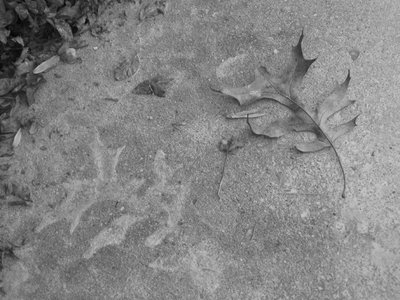"A Deep Indicator"

A Yid commenting on On His Yahrzeit:
Ari za"l says, that one has to complete his learning in course of his gilgulim. If he feels attraction to certain field of study, it indicates, that this field was neglected by him in his previous gilgulim (if any), so now his neshomo arouses this urge to learn what it missed before, so the rule of "ma sheliboy chofeytz" according to mekubolim is really a deep indicator of what is missing for neshoma's tikun.
A Simple Jew responds:
I found this idea to be fascinating and hope we can explore this in more depth in the future.
I once heard the story that the Chozeh of Lublin had a thought that he shouldn't concentrate so much on learning Gemara. The Chozeh of Lublin, however, instantly redoubled his efforts in learning Gemara because he realized that this thought trying to discourage him most likely came from the yetzer hara. From this, he also came to understand how very precious a person's learning of Gemara was to Hashem.
While an attraction to a specific field of learning is deeply rooted in the neshoma, we can not attribute the inclination not to learn something to a source of kedusha. This follows Rabbi Yaakov Meir Shechter's teaching, "Holiness never comes to destroy, it only comes to build."









12 Comments:
Definitely. We talked about what one has a desire to learn, not of that one has a desire not to learn something.
Look in Hilchoys Talmud Toyro from Baal haTania, where he clearly states, how is the mitzvo of talmud Toyro should be fulfilled. He says that all areas of Toyro should be studied, and the time when one begins (i.e. as a child or as adult) should be taken in account, because it changes the program of study. And note, that one has to concentrate on Halocho more, than on Gemoro, at least for one who still doesn't know Halocho well enough, because without good Halocho knowledge one will make many mistakes (and wouldn't be able to ask shayloys from a rov when needed).
Still, the mentioned above rule applies . If one has a set shiurim in different subjects (in a balanced way for his needs), he learns more of what he is attracted to, because this is his neshomo's real need.
Interestingly enough, in other place Baal haTania says, that a regular working balabos (not a chochom who learns a whole day) should concentrate on Misnna (Halocho), and Kabolo (Zohar) more than on other studies! Why? He says, because it strengthens his yiras shomaim.
A Yid: Why Mishnah more so than Chumash?
Chumash (and Tana"kh) also. I mentioned the areas of Toyro shebeal pe. Mishna is equivalent with Halocho in this focus.
A Yid: do you know where the Alter Rebbe sais this?
Moshe: I saw it in the recently published seyfer "Shaylos utshovoys hoRav". Find in mafteach "Zohar" there.
ASJ wrote: we can not attribute the inclination not to learn something to a source of kedusha.
Perhaps this is why some of us object to... [uh, oh, here we go again!]....Nittel???
Sorry to bring this up again, but I just couldn't resist - your words were screaming out at me!!!
Yitz: I don't think this is a good comparison because a person does not refrain from learning on Nittel based upon his own desire or inclination. He refrains from doing so because he is abiding by a minhag of a tzaddik that he is attached to.
I have been making some more inquiries on the subject of Nittel that I will relate in a future posting, but I am still curious what the Modzitzer Rebbe's position is on this issue.
He refrains from doing so because he is abiding by a minhag of a tzaddik that he is attached to.
Agreed, I was referring to one who "observes" Nittel without attaching himself to a tzaddik! He just "takes it on."
I haven't heard from Modzitz regarding this, except for one close friend who's been involved in Modzitz a lot longer than I, & he doesn't keep it. But he didn't know about the "official" minhag.
> Agreed, I was referring to one who "observes" Nittel without attaching himself to a tzaddik!
I think this comparison is wrong. It has nothing to do with attaching to a tzadik. This minhog in itself has a meaning. Either you beleive it or not - is a different thing.
> I haven't heard from Modzitz regarding this
You should as the Modzitcher Rebbe. Otherwise you wouldn't figure it out.
(I mean you should ask).
A Yid: You can think the comparison is wrong, others -- like ASJ himself -- appear to agree with me. As to asking the Rebbe Shlita, he is busy with too many things for me to ask about this. I can from out from one of his gabbaim or other Chassidim just as easily, B"H'!
Post a Comment
<< Home